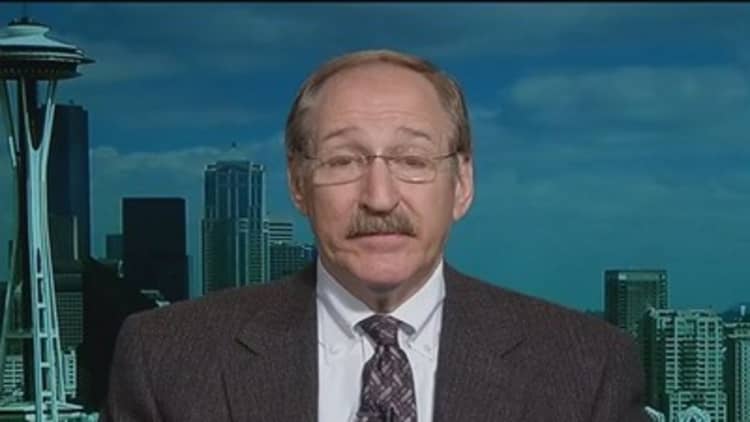JPMorgan Chase and Citigroup own pieces of Square, whose vision is speeding up the cashless economy. Google and Apple are experimenting with mobile wallets—and are seeing mixed results. And MasterCard and Visa are dabbling in startups. Even PayPal, which currently dominates web payments, is on the acquisition trail. The prize is an army of mobile users that will spend $90 billion on payments this year versus $12 billion in 2012, according to Forrester Research.
That's a rich digital vein for big companies to mine. But for the corporations at the forefront of mobile payment investments and for consumers, the landscape can be confusing. Big banks, credit card companies and technology players are trying to figure out their place in this digital cash grab, and consumers could just end up paying the same old vendors in new ways.
Google Wallet has floundered since its launch a few years ago. Google's latest features let consumers send money through their Gmail addresses via an app. Matt Harris, a managing director at Bain Capital Ventures, said Google is still "licking its wounds" but will be back, especially since failure is not something feared among technology companies. Before joining Bain Capital Ventures, Harris worked for Village Ventures, which backed mobile payments player Dwolla and the mobile bank Simple.
(Read more: Retail banks' worst nightmare? Google)
In fact, Google and its peers have little time to wait, given the aggressive competition in the mobile banking space, Harris said. PayPal, for example, isn't sitting still—it recently acquired Braintree for $800 million. Ultimately acquired by eBay, PayPal got its start in 1998 when it jumped ahead of the credit card companies, which were just too slow in their move toward web payments. "There was a gap in the market," said Anuj Nayar, senior director of global initiatives at PayPal.
They [banks] haven't figured out how to handle smartphones and wearable technology. They're very confused.Mauro GuillenProfessor of international management at the Wharton School
In the middle of these huge players sits a steady stream of startups, attracting the cash hoards—if not also the paranoid fears—of deep-pocketed technology and financial companies. Google Ventures has backed mobile payments startup LevelUp.
Getting big isn't going to be the end game for most of the mobile payments startups, according to analysts, who see banks and other institutions snapping up new players, said Mary Monahan, a mobile analyst with Javelin. Big banks don't want to be left behind, and new innovations like mobile wallets are theirs to lose. The reason? They're still the most trusted ways to use mobile banking, Monahan said.
(Read more: Cash costs Americans $200 billion a year)
Banks' heavy regulation ironically gives them an unexpected leg up too. This regulation makes it hard for other players, even PayPal, which owns banks in Europe, to move into banking. "Security and privacy are a big thing over smartphones too," said Mauro Guillen, professor of international management at the Wharton School.

When it comes to adopting technology, though, banks are very slow moving. "They haven't figured out how to handle smartphones and wearable technology," Guillen said. "They're very confused." Even though JPMorgan and Citi have been early backers of mobile payments companies, Guillen doubts their ability to pull off the right acquisitions among competing startups. "They will kill them," he said.
(Read more: The next online shopping game changer)
Credit card companies may prove savvier at acquisitions, however, and they have a lot on the line because they process millions of transactions per minute. Credit cards' large networks give them as close to a monopoly as any corporations hold. "They're also more willing to take risks than banks," Guillen said. Both Visa and MasterCard have their own versions of mobile wallets. And Visa, hedging its bets, has invested in Square too.
Despite big players with big ideas for mobile payments, no one player is likely to "win" in the same way that the Visa-Mastercard duopoly represents a legacy of the 20th-century financial infrastructure. That's because there will be too many ways to pay for things, including cash—yes, even cash. "People still use fax machines," PayPal's Nayar said. "Cash will also still be around."
It's a world in which Apple can theoretically own transactions because it owns mobile devices. "They could be a game-changer," Monahan said. "First winners aren't always the final winners."
Maybe so, but given the confusion and overlapping bets on the current landscape, you might not want to take any prediction about the future of mobile payments to the bank.
—By Constance Gustke, Special to CNBC.com




